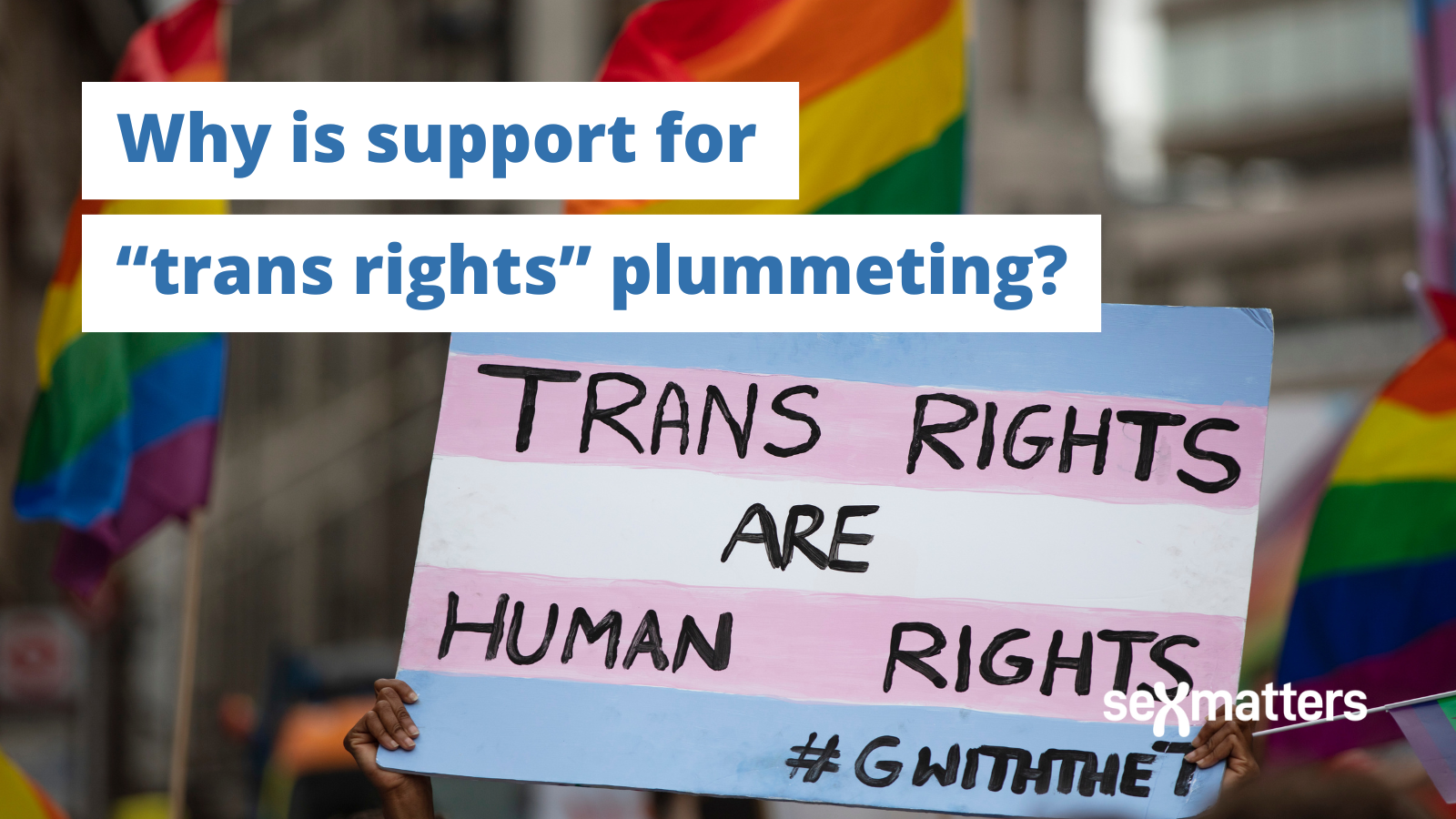Why do people think “transgender rights” have gone too far?

It’s not just about self-ID
Support for the law that allows people to change the sex recorded on their birth certificate has fallen a long way over the past few years, most sharply when self-ID was being proposed, in 2018–19 in the UK and then again in 2021–22 in Scotland.
It’s not just about changing birth certificates, though. A second question in the same British Social Attitudes survey asked:
“Do you think attempts to give equal opportunities have gone too far or not gone far enough for transgender people?”
When this question was first asked in 2021, the answers split evenly across the spectrum of opinion. A third of respondents said they had not gone far enough, a third said they were about right, and a third said they had gone too far.
But the latest results, from people surveyed in 2023, show a significant shift. Almost half, 47%, now think that “attempts to give equal opportunities to transgender people” have gone too far. Scaled up to the UK population (legitimately, because this is a representative sample) that’s about nine million people more than two years ago. There’s a corresponding fall in those who think trans rights have not gone far enough – from 32% in 2021 to 22% now.
What has changed?
What’s changed since 2021 to cause such a large shift? The survey doesn’t tell us, but as the law hasn’t changed in the past few years, it seems likely that this is mostly about awareness.
While media stories about trans-identifying people are generally sympathetic, reports have also covered the impact of men who identify as women being granted access to single-sex spaces and services and taking women’s places in sport, with high-profile stories like that of American swimmer Lia Thomas and Welsh cyclist Emily Bridges alongside more recent reports of trans-identifying men causing problems in non-elite sport in the UK such as cricket, football and ice-hockey.
Male criminals who say they identify as trans and have been allowed to serve their sentences in women’s prisons have also been in the news, the most notable probably Scotland’s double rapist Adam Graham, who renamed himself Isla Bryson and was photographed in tight pink leggings.
A liberal direction
The National Centre for Social Research, which runs the survey, says:
“This development appears to contrast sharply with the more widespread movement of society in a more liberal direction.”
This implies that accepting that gender self-identity should replace sex in rules and laws would be the most liberal option. But it seems the public increasingly understands that this is not possible or sensible. Housing men in women’s prisons is not liberal, nor is allowing male athletes to take medals from women.
Instead, it is necessary to recognise that when sex matters, it is sex that matters. People can dress however they please and call themselves whatever they like, but they cannot demand to be treated as if they have changed sex, because that impacts the rights of others.
Politicians continue to refer to this as “a toxic debate”, as if it is poisonous merely to point out that there are competing interests and conflicting rights when men seek to be accepted as women or to call out the detrimental effects of trans demands on others. But if the human rights of trans-identifying people are a legitimate topic for discussion, so too are the rights of women and girls, and the right to freedom of speech and belief.
This survey should help politicians to realise that if they want to move on from what they consider to be a divisive issue, they need to stop pledging allegiance to the vague and ever-expanding concept of “transgender rights” and instead be clear that they are concerned about equal rights and finding accommodations which do not undermine the rights of the majority.
